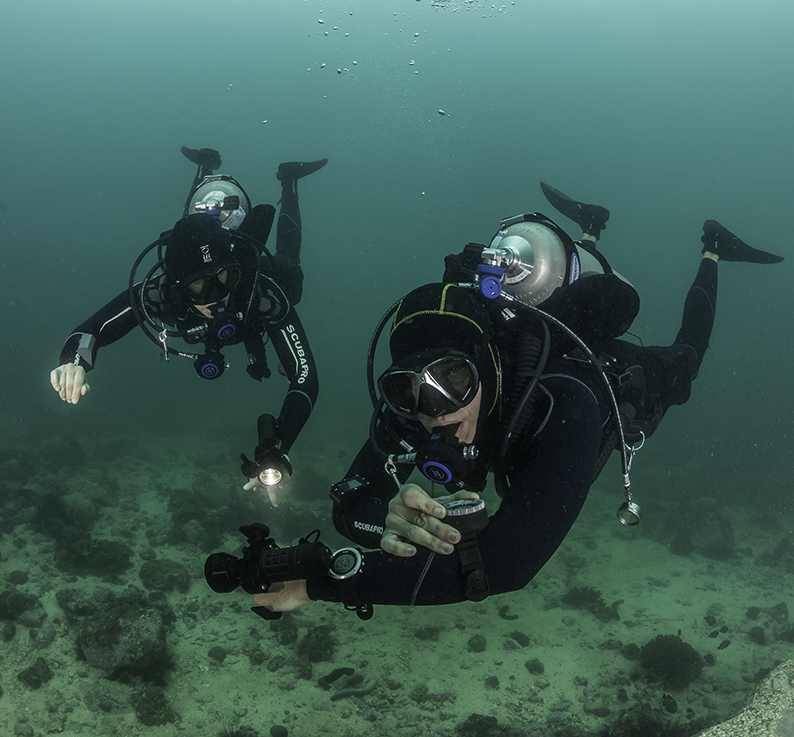Navigation Primer
Navigation Primer
Why Take This Course?
Extending experience is a natural progression with enthusiastic divers, and for GUE trained diving teams, environmental awareness is one of the most important aspects of their capabilities. Knowing where you are and how to navigate underwater will increase your comfort and confidence to perform safe dives with your team.
GUE’s Navigation Primer is a course designed to teach divers the basics of underwater compass use and natural navigation techniques.
Who Is It For?
All divers who are autonomous should have the skills to navigate on dive sites. This course is recommended to be taken before the Documentation Diver, Scientific Diver, and especially Rescue Primer, as the latter requires competence in navigational skills.
This primer will also prepare you to dive in reduced light conditions (i.e. night dive).
WHAT WILL I LEARN?
Course outcomes include, but are not limited to: compass use and navigation (simple and complex), natural navigation, basic navigational strategies, and managing a spool as a guideline underwater.Applicants for a GUE Navigation Primer must:
- Be a minimum of 16 years of age.
- Be physically and mentally fit.
- Be a non-smoker.
- Be able to swim.
- Obtain a physician’s prior written authorization for use of prescription drugs, except for birth control, or for any medical condition that may pose a risk while diving.
- Have passed the GUE Recreational Diver 1 course or a GUE Fundamentals course at the “recreational” level.
- Have completed at least 25 non-training dives.
- For a full list of course prerequisites, click here.
This course can be conducted as part of GUE Recreational Diver Level 2 program.

Take the Next Step
Rescue Primer
GUE’s Rescue Primer is a course designed to teach divers basic rescue techniques relevant to scuba diving emergencies.
Triox Primer
GUE’s Triox Primer is a course designed to teach divers the use of triox 30/30 as a GUE standard gas to reduce the effects of increased gas density in recreational divers.




